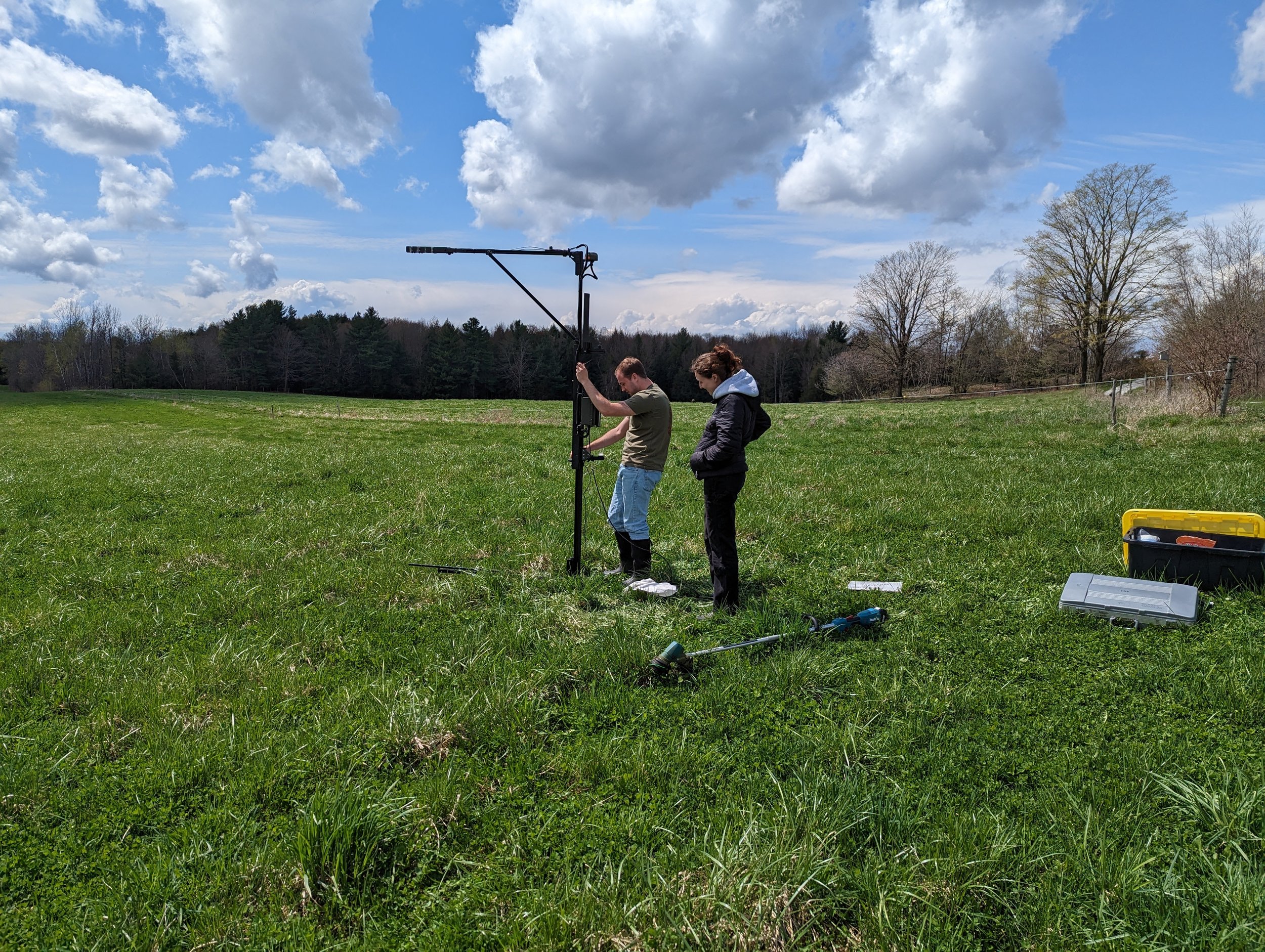
LandWEB (Land Community, Water, Energy, Biomass) is a 501(c)(3) environmental research nonprofit dedicated to providing landscape feedback to support land stewards and their communities in order to heal our watersheds.
Our Work
In the face of changing ecological conditions and extreme weather events, our work aims to increase environmental and food security by implementing ecologically-based, and community-driven resilience and mitigation strategies.
Land stewards–farmers, foresters, and ranchers–make decisions every day that impact the resilience of Vermont’s lands. Based in the field of environmental biophysics, the LandWEB scientific measurement and modeling system is designed to provide critical, ground-truthed data to support their decision-making and heal whole watersheds – neither to privatize nature through mechanisms like carbon credits, nor extrapolate the impacts of reductive practices that ultimately are not increasing our resilience to a rapidly changing climate.
At the core of environmental biophysics is the idea that all life depends on the transport of three physical components: energy, water, and carbon. These operate in a system of soil, plants, the atmosphere, and other living beings. Modeling the flows of these components can provide an effective means of monitoring complex soil-plant-atmosphere systems.
What We Do
LandWEB provides instrumentation and services for measurement and analysis of environmental variables, including soil, weather, solar radiation, water, and vegetation. We also develop and maintain environmental models for synthesis and interpretation of these data. LandWEB models take in data collected by our field team as well as other remote sensing and weather data to produce landscape feedback outputs including:
Key physical, chemical, and topographical soil properties
Leaf area index
Biomass
Plant available water
Detailed energy and water budgets
Key components of nutrient budgets
The LandWEB scientific measurement and modeling system equips land managers with rigorous, continual landscape feedback, allowing them to manage their land for:
Maximized infiltration and water holding capacity
Reduced flooding
Recharging groundwater
Reduced nutrient loss
Increased rooting depth and topsoil health
Improve soil health
Increasing prairie and forest health for livestock, pollinators and other wildlife
Improved financial performance on farms
Our work starts at home - Vermont, much like the rest of the globe, has become a place of high risk and uncertainty due to extreme weather. Recent drought and floods have disrupted our communities, taken neighbors’ lives, destroyed infrastructure, and cost the state upwards of $3 billion. The damage of storms and rainfall events like 2011’s Tropical Storm Irene and the floods of 2023 and 2024 have had a lasting impact on Vermont’s community infrastructure.
All working systems, including people and land, require informational feedback to be functional. We support farmers to heal watersheds by aligning our lives and livelihoods with the ecological function and the shapes of the land. We empower community learning systems, because the observations and judgements of land stewards and community members are integral to caring for our watersheds as a whole. As our stewards and community members continue working to heal our watersheds and our lands, their valuable learnings can be shared across the state and beyond to support ecosystem health and climate resilience globally.
Growing a deep topsoil future
Your tax-deductible donation supports rigorous, breakthrough research and accelerates the development of LandWEB’s innovative landscape feedback approach: hiring organized land stewards to generate knowledge and heal our watershed homes.
Donate today to grow deep topsoil, for a more resilient tomorrow.


